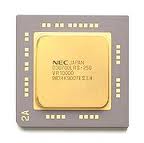http://www.h-online.com/open/features/Interview-Linus-Torvalds-I-don-t-read-code-any-more-1748462.html
Quote:
SGI in particular worked a lot on scaling past a few hundred CPUs. Their initial patches could just not be merged. There was no way we could take the work they did and use it on a regular PC because they added all this infrastructure to work on thousands of CPUs. That was way too expensive to do when you had only a couple.
I was afraid for the longest time that we would have the high-performance kernel for the big machines, and the source code would be separate from the normal kernel. People worked a lot on just making sure that we had a clean code base where you can say at compile time that, hey, I want the kernel that works for 4,000 CPUs, and it generates the code for that, and at the same time, if you say no, I want the kernel that works on 2 CPUs, the same source code compiles.
It was something that in retrospect is really important because it actually made the source code much better. All the effort that SGI and others spent on unifying the source code, actually a lot of it was clean-up – this doesn't work for a hundred CPUs, so we need to clean it up so that it works. And it actually made the kernel more maintainable. Now on the desktop, 8 and 16 CPUs are almost common; it used to be that we had trouble scaling to 8, now it's like child's play.
I was afraid for the longest time that we would have the high-performance kernel for the big machines, and the source code would be separate from the normal kernel. People worked a lot on just making sure that we had a clean code base where you can say at compile time that, hey, I want the kernel that works for 4,000 CPUs, and it generates the code for that, and at the same time, if you say no, I want the kernel that works on 2 CPUs, the same source code compiles.
It was something that in retrospect is really important because it actually made the source code much better. All the effort that SGI and others spent on unifying the source code, actually a lot of it was clean-up – this doesn't work for a hundred CPUs, so we need to clean it up so that it works. And it actually made the kernel more maintainable. Now on the desktop, 8 and 16 CPUs are almost common; it used to be that we had trouble scaling to 8, now it's like child's play.

























 Lucky guy!
Lucky guy!

